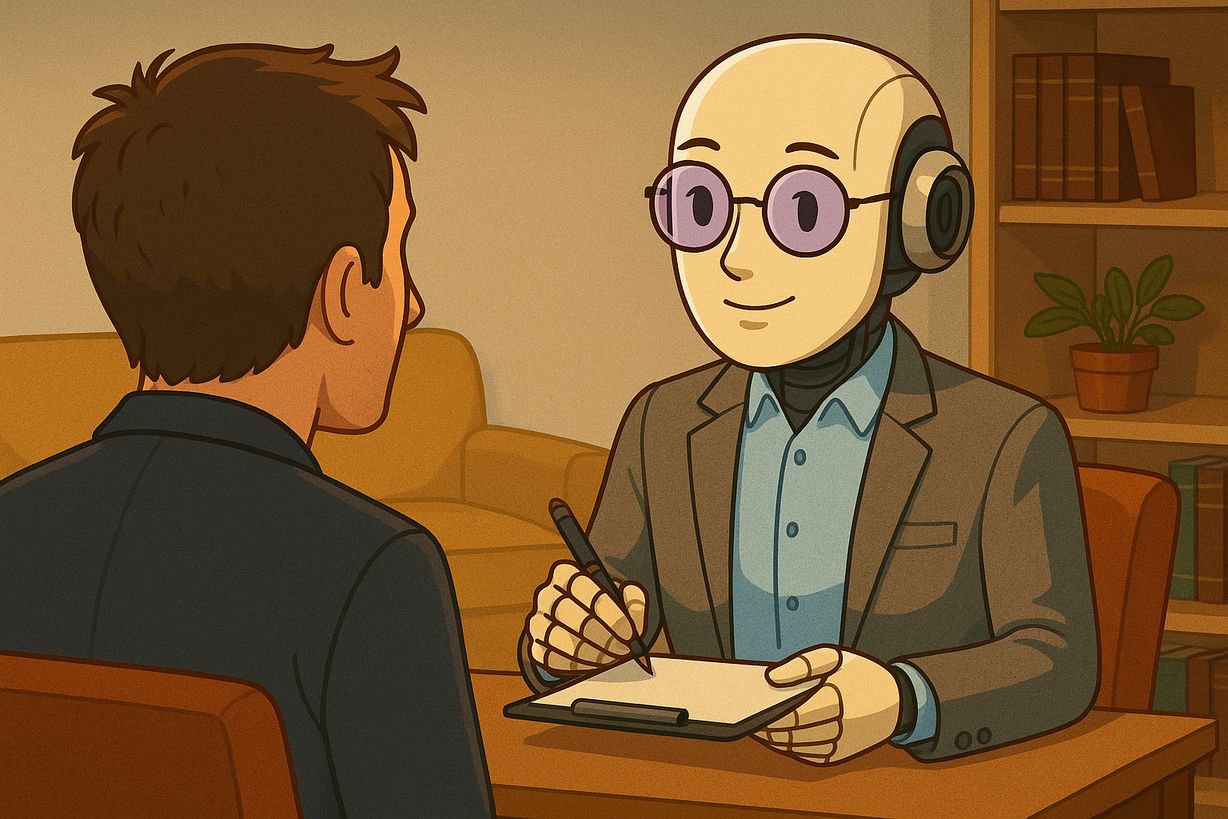- Aiyoudaily
- Posts
- #26 How to write all possible texts with one tool?
#26 How to write all possible texts with one tool?
Hello!
We welcome you with a fresh aiyoudaily newsletter and help you finish the week by strengthening your knowledge of the world of artificial intelligence and practical advice ;)

In today's newsletter:
Do people still browse Google?
Differences between bots and humans
Toolbaz – a tool that writes AI texts in a targeted manner
Introducing the first AI-native CRM
Connect your email, and you’ll instantly get a CRM with enriched customer insights and a platform that grows with your business.
With AI at the core, Attio lets you:
Prospect and route leads with research agents
Get real-time insights during customer calls
Build powerful automations for your complex workflows
Join industry leaders like Granola, Taskrabbit, Flatfile and more.
Google sees an internet crisis, even though it recently announced that it was thriving.

Google has acknowledged that the open web is rapidly disappearing, even though it recently claimed that it was in good shape and that artificial intelligence had no impact on it. This statement appeared in court documents and contradicts the company's previous position.
Context
With the inclusion of AI in search engines, it has been noticed that users no longer need to click on further links once they have received a quick AI response. This began to reduce the number of visits to individual websites, because why browse further when Google immediately provides a "digestible," quick answer? Meanwhile, back in the summer, Google representatives claimed that the internet was thriving, click-through rates remained stable and even improved in quality, and critics who accused AI of reducing visitor traffic were dismissed as mistaken.
However, in court, the company admitted the opposite that regular search is already declining. This position suggests that Google sees an inevitable change and is trying to shift the blame away from itself.
What does this mean?
Google is sending mixed signals – publicly defending AI and saying that the internet is still accessible as usual, but in court talking about the decline of deeper search. This shows that even tech giant Google sees a crisis, and discussions about the impact of AI on the future of the internet are likely to intensify.
HEADLINES
S. Altman cannot distinguish between bots and humans: OpenAI CEO Sam Altman has admitted that it is becoming impossible for him to distinguish between humans and bots on social media. He also raises the question of whether humans have started to speak like AI, while the technology itself is being taught to speak like humans. Meanwhile, critics are wondering whether this statement is an attempt to prepare the ground for a possible OpenAI social network.
Satirical AI awards: The AI Darwin Awards are a new satirical tribute to those who use artificial intelligence irresponsibly, ignoring obvious risks and ethical warnings. The awards honor daredevils who have chosen quick capital over safety, and whose decisions pose a threat not only to themselves but to all of humanity.
Is it telepathy? Boston startup Alterego has created a portable device that uses AI to read words encoded in the micro-movements of a person's jaw and throat. It can be used to program, write messages, or communicate even in noisy environments and in multiple languages. This is a new, non-invasive way to communicate with AI and the environment.
Microsoft + Anthropic + OpenAI: Microsoft plans to integrate Anthropic AI models into Office 365 together with OpenAI. This allows the company to diversify its AI partnerships. Claude models are better at creating Excel and PowerPoint files than GPT-5, so Microsoft is considering using them even through its competitor AWS's services. This shows that the company is becoming more pragmatic and less dependent on a single partner.
AI in practice: How to write all possible texts with one tool?
Toolbaz is a free tool that allows you to write a wide variety of texts with the help of AI and adapt them best to their purpose. Let's take a look at some of the most popular texts that this tool helps to write.
Step #1: Blogs
AI will help you write blog posts. The best part is that you can immediately add the SEO keywords you want to use, the quotes you want to include, the tone of voice you want to use, the length of the text, and other options. This makes writing a blog easier and more precise.

Step #2: Press releases
You can also write press releases and customize them with relevant options such as company information, event details, target audience, text length, and tone.
Step #3: Books and stories
Yes, you can write an entire book without being a writer. Tool

Step #4: Song lyrics
If you want to write your own song, you can usually do so with this tool, and then transfer the lyrics to ElevenLabs, for example, and add an audio track to them. Describe the desired genre, mood, rhythm, style, and target audience that will listen to it.
Step #5: Rewriting text
You can not only create texts from scratch, but also rewrite your existing texts, for example, if you need to paraphrase them, lengthen them, remove plagiarism, create summaries, etc.

Toolbaz is a tool that makes it easier and more focused to write a wide variety of texts. From serious ones, such as Python code generation, job descriptions, and product descriptions, to less serious ones, such as recipes, love poems, and pick-up lines.
That’s it for today’s aiyoudaily 📚
If this issue helped you, share it with one friend who geeks out about AI too 🚀

